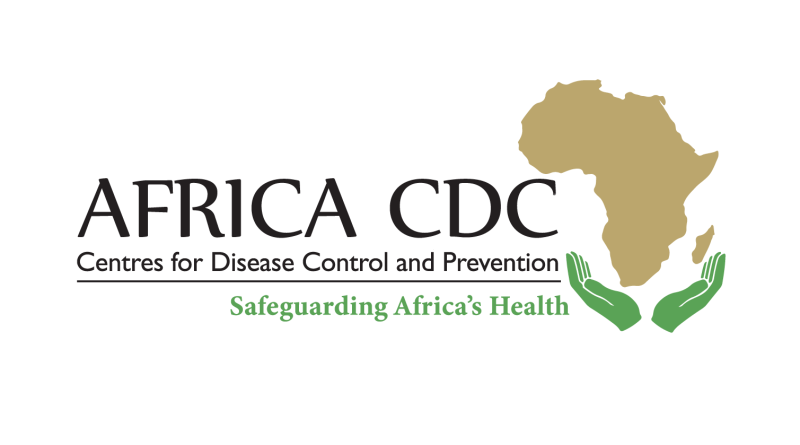Three countries account for 84% of Africa’s cases – Official
The Africa Centre for Disease Control and Prevention (Africa CDC) says Democratic Republic of Congo (DRC), Sierra Leone, and Uganda account for over 84 per cent of Mpox cases across Africa.
The figure reflects the data as of epidemiological week 25 of 2025, which underscores the disproportionate disease burden on three countries, even as overall cases show a downward trend.
Speaking during a press conference on Friday, the Director-General of Africa CDC, Jean Kaseya, said the DRC alone represents 62 per cent of all confirmed cases on the continent since the current epidemic began.
Mr Kaseya said while the continent is seeing a consistent decline in Mpox cases in the last six weeks, the burden remains overwhelmingly concentrated in just a few countries.
“This calls for tailored and intensified response efforts in these hotspots,” he said.
He added that from January 2024 to June 2025, Africa recorded more than 75,630 suspected cases and 25,175 confirmed cases of Mpox, with 574 deaths.
Mr Kaseya added that Uganda, Sierra Leone, and the DRC accounted for a significant share of these cases, with Uganda recording over 6,900 confirmed cases, Sierra Leone 4,297, and the DRC 27,940.
He said that children under 15 make up a growing proportion of those affected. In Burundi, nearly 47 per cent of confirmed cases are children.
Similarly, he said that in Uganda, over 11 per cent of confirmed Mpox patients are children under 15.
Mr Kaseya also said that men account for over two-thirds of confirmed cases continent-wide, suggesting possible gender-based exposure patterns that require further investigation.
In spite of a 100 per cent testing rate for samples received in most countries, Mr Kaseya said that testing coverage remains low due to logistical issues.
He said issues like poor sample transportation, especially in remote areas of the DRC and Sierra Leone had remained a major setback.
In Sierra Leone, the Africa CDC praised recent gains in rapid test result turnaround time (2.5 days) and high positivity rates of 85 per cent, indicating targeted and effective testing.
On vaccination, he said that over 698,000 people across 11 countries have received at least one dose of the Mpox vaccine.
Notably, he said Sierra Leone successfully vaccinated over 70,000 people during its second round of the campaign that began on 23 June.
However, he said that the vaccine stock outs remain a critical bottleneck, with countries like Liberia and parts of Sierra Leone reporting shortages.
He said the DRC continues to lead with over 530,000 persons vaccinated, accounting for 75 per cent of the continent’s total.
READ ALSO: Nigeria records more deaths from Lassa fever
While noting that the response has not been without setbacks, he pointed out that several treatment centres in Uganda and the DRC face shortages of essential medicines, fuel for ambulances, and gaps in hygiene staffing.
He said that in Uganda, case management units in cities like Entebbe and Fort Portal are overburdened, with admissions outpacing capacity.
According to him, progress is being made with supportive care protocols and ongoing health worker training that is yielding improved outcomes, with a gradual drop in case fatality rates now at 0.5 per cent continent-wide.
Mr Kaseya called on African Union Member States to adopt an integrated emergency response that addresses both Mpox and concurrent cholera outbreaks, particularly in regions affected by climate shocks, conflict, and fragile sanitation systems.
“The Mpox epidemic remains a public health emergency of continental security (PHECS), and we must not relent in our efforts,” he stressed.
The News Agency of Nigeria (NAN), reports that Mpox is a viral disease similar to smallpox, spread through close contact.
It causes fever, rash, and swollen glands, and can be severe in children and people with weakened immunity.
(NAN)
Support PREMIUM TIMES’ journalism of integrity and credibility
At Premium Times, we firmly believe in the importance of high-quality journalism. Recognizing that not everyone can afford costly news subscriptions, we are dedicated to delivering meticulously researched, fact-checked news that remains freely accessible to all.
Whether you turn to Premium Times for daily updates, in-depth investigations into pressing national issues, or entertaining trending stories, we value your readership.
It’s essential to acknowledge that news production incurs expenses, and we take pride in never placing our stories behind a prohibitive paywall.
Would you consider supporting us with a modest contribution on a monthly basis to help maintain our commitment to free, accessible news?
Make Contribution
TEXT AD: Call Willie – +2348098788999






